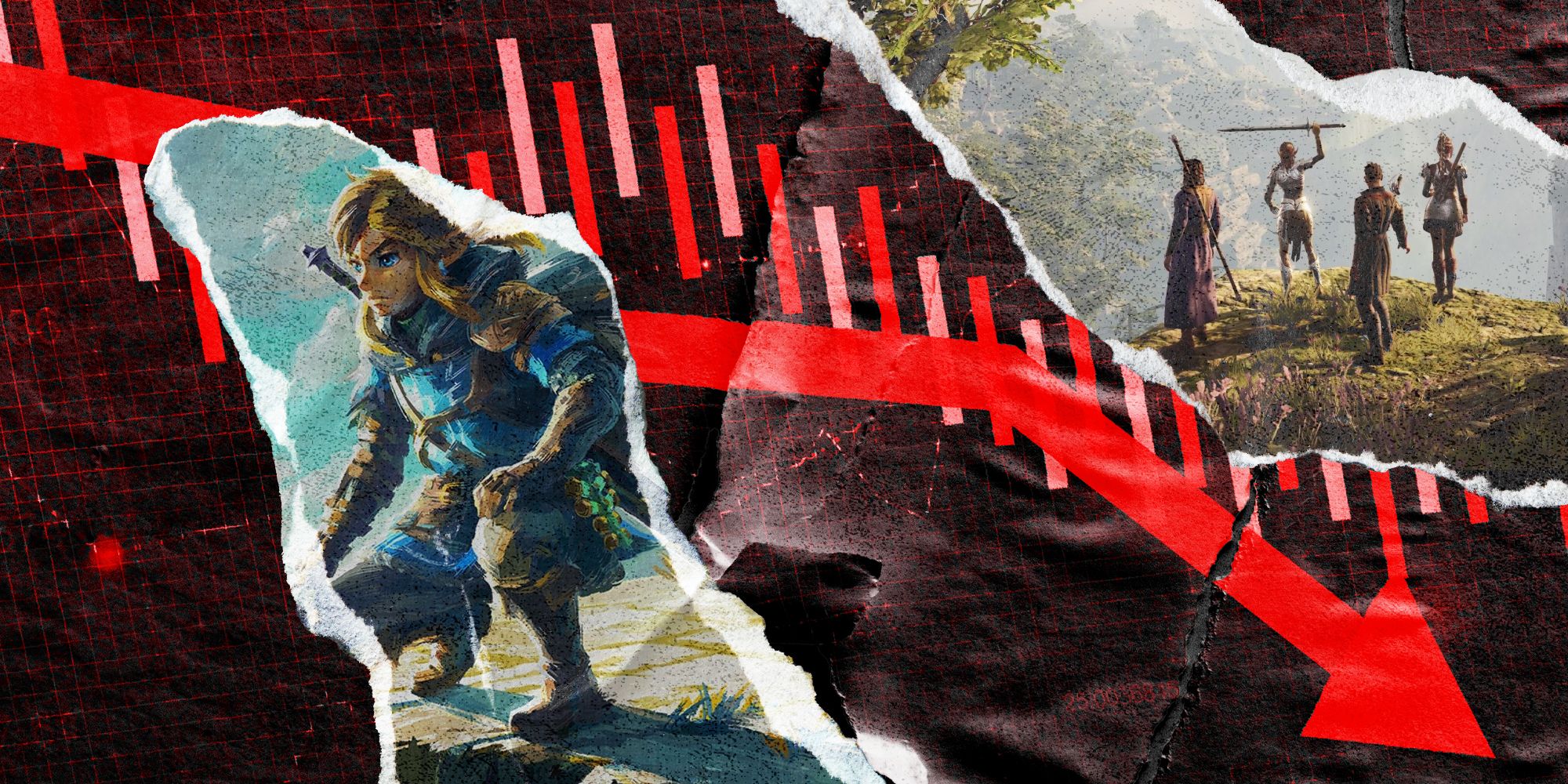
2023 has been a great year for video games. Yeah, I know. Forget the headline for a second, alright? I'm going somewhere with this. Just three months after The Legend of Zelda: Tears of the Kingdom launched to one of the highest Metacritic review scores of all time, Baldur's Gate 3 beat it by a point. We've had a remake of the best horror game ever made, Resident Evil 4, which somehow managed to improve on the original. We're in the midst of enjoying Starfield. We're still full from Street Fighter, Metroid Prime, Sea of Stars, Final Fantasy, Armored Core, and Dead Space. We have Spider-Man, Super Mario, Mortal Kombat, and Assassin's Creed still to come. We're so sick of good games we've decided Diablo 4 is terrible. It's been a good year for video games. A great year. A challenger to the likes of 2020, 2013, and 1998 as the best ever. But it has been a bad year for gaming.
When we say this year has been great, we specifically mean that good games have launched. The list above speaks for itself, and that's before you get into the lesser noted but incredibly special indie experiences like A Space for the Unbound, Paranormasight, or Goodbye Volcano High. But gaming is not just about what games happen to come out in an arbitrary 12 month period. And so far, this year has been absolutely devastating.
Related: The Latest Barbarian Subclass Lets You Be A Mystical Viking Warrior
Baldur's Gate 3 is the highest reviewed game of the year. It’s great primarily because Larian was allowed to take its time to perfect every inch of the game, including rolling into a long and comfortable early access period. In the week it launched to critical acclaim and Steam numbers that were inches away from record breaking, BioWare announced mass layoffs. All departments of BioWare were impacted by this, with senior writers and creators of iconic, fan favourite characters turfed out unceremoniously. It highlighted that Baldur's Gate, for all its greatness, was the exception to the rule. The previous two games in the series had been developed by BioWare (one of those laid off wrote the original Baldur's Gate), and it’s upon BioWare's once-pioneering choices matter, character driven storytelling that Larian built the third entry.
Elsewhere, Microsoft and Sony have been engaged in a constant slugfest in which both companies say one thing in public, another private, and this foundation-shifting acquisition of Activision Blizzard is not being threatened in court because it harms workers who have fewer employment options post-layoffs (or, as is unfortunately common in gaming, after harassment settlements), nor because huge conglomerates tend to kill off smaller, creative studios in favour of throwing more bodies into the meat-grinder. Tony Hawk's Pro Skater, Crash Bandicoot, and Spyro the Dragon were all offered in sacrifice to the almighty dollar in the past few years. No, instead Sony is attempting to stop the acquisition because it considers Call of Duty so crucial to the fabric of gaming that Sony cannot thrive without it. We have reduced the most important employee welfare issue of our times down to a fight over who gets to profit from the army game.
In the midst of all this, over a thousand staff at Microsoft were laid off, with 343 and Bethesda the hardest hit. Sega also cut 121 employees due to "external factors", soon after buying (and almost immediately killing to revive it as a grotesque microtransaction-stuffed phoenix) Angry Birds developer Rovio for $775 million. In fact, Kotaku notes that between Unity and EA, 1,600 employees have been laid off, while Firaxis, Take-Two, CD Projekt Red, Riot, and FaZe Clan have also cut their rosters. Embracer, having failed to bear instant fruits from its acquisition-heavy strategy, is now cutting its losses. Despite the economy being (relatively) stable and sales of video games as a whole increasing, companies keep making cuts.
In a way, it's an inevitable end point. Gaming might point to its higher profits than movies, television, and music, but they also have a much longer development cycle. Between Red Dead Redemption 2 and Grand Theft Auto 6, if we take the optimistic view that it will launch next year, there will have been eight Taylor Swift albums and 15 Marvel movies in the time it took Rockstar to make one game. Rockstar has the benefit of, well, being Rockstar. GTA 6 will be a big hit and will make its money back with both a bumper launch and huge profits over time through GTA Online. Other studios are increasingly copying this model of long development cycles focused on premium experiences and hyper realism, but they're not making Rockstar money on the backend.
And that's just a studio level. That's before you get to the layoffs we've seen in games journalism and the cancellation (and likely permanent fall) of E3. A robust press that doesn't act as an extension of PR is more crucial than ever as we see layoffs and tougher working conditions, and it's increasingly disappearing. Meanwhile, E3 was once the tentpole event of the year, a core representation of what gaming was. But these days, with longer development cycles, corporate penny pinching on both sides, and studios keen to control the narrative with their own shows (even at the cost of airtime for smaller studios crucial to the ecosystem), E3 was deemed surplus to requirements, replaced by the more commercially-minded Summer Game Fest.
We've had some great games this year, and we should celebrate them. I hope we look back on this year, especially with so many big titles still to come, and think of it as an all-timer. But more than that, I hope we don't look back on it as a cornerstone of gaming's descent. I'm enjoying 2023's games, but I'm still worried about where we're headed.
Next: So, My Disney Lorcana Princess Decks Sucked













